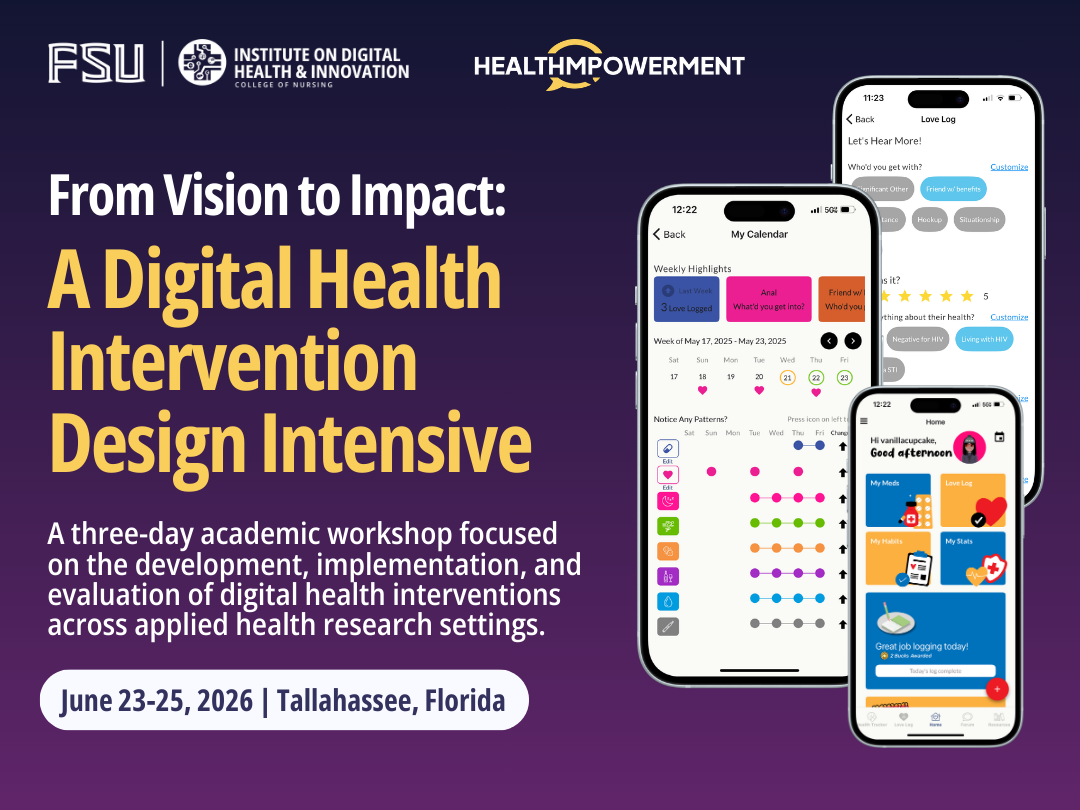
Our Mission
The Institute on Digital Health and Innovation advances individual and public health through collaborative and synergistic partnerships focused on the development, evaluation, and dissemination of digital health tools, technologies, and innovations.
Our Services
We offer a range of services including project development, implementation, recruitment, data analysis, and dissemination.
Our Findings
Check out our research findings, including peer-reviewed journal articles, infographics, and videos
Give to IDHI

Our commitment to improving health care remains unwavering.
With your support, we can bridge funding gaps from sudden shifts in federal priorities that threaten years of progress in improving health care access, reducing costs and saving lives.
Make an impact today.
Featured News

Dr. Budhwani Awarded $616,000 Grant: Healthy Choices to Reduce Stigma and Improve Self-Management of Alcohol and HIV among Young Adults
IDHI is thrilled to announce Dr. Henna Budhwani has been awarded a $616,000 NIH/Fogarty International Center grant for a new project: Healthy Choices to Reduce Stigma and Improve Self-Management of Alcohol and HIV among Young Adults. Led by Henna Budhwani, PhD, MPH, this initiative brings together a powerhouse collaboration with Sylvie Naar, PhD, LP and Iván Balán, PhD from the FSU College of Medicine.
Healthy Choices is a four-session behavior change communication intervention that was developmentally tailored for emerging adults to address self-management of health behaviors and HIV with evidence of positive effect on stigma and depression, built on Motivational Enhancement Therapy, integrating Motivational Interviewing with brief cognitive-behavioral strategies. There are no Spanish-language interventions that concurrently address mental health, viral suppression, and stigma, tailored for young adults who are in a developmental period marked by exploration and a need for autonomy in health decision making. This project will adapt and pilot test Healthy Choices for Spanish with local contexts plus co-create implementation strategies with community advising for future scale up.

Register Now! From Vision to Impact: A Digital Health Intervention Design Initiative
Join experts from the FSU College of Nursing's Institute on Digital Health and Innovation from June 23-25, 2026 for a three-day academic workshop in Tallahassee, Florida focused on the development, implementation, and evaluation of digital health interventions across applied health research settings.
This workshop is designed for researchers, clinicians, graduate students, digital health innovators, nonprofit leaders, and public health professionals interested in designing and deploying impactful digital health interventions.
Whether you're launching your first mHealth study or scaling an established program, this intensive offers practical tools, expert insights, and hands-on experience to bring your ideas to life using cutting-edge methods and platforms like HealthMpowerment.

Dr. Hightow-Weidman and Dr. Muessig Named Fellows of the Society of Behavioral Medicine
The Institute on Digital Health and Innovation is celebrating a major professional milestone for our founding directors. Dr. Lisa Hightow-Weidman and Dr. Kathryn Muessig have been named as Fellows of the Society of Behavioral Medicine.
This prestigious honor recognizes their outstanding contributions to the science and practice of behavioral medicine. Their achievements reflect the strength and impact of FSU’s faculty, whose work continues to influence the future of the discipline.



